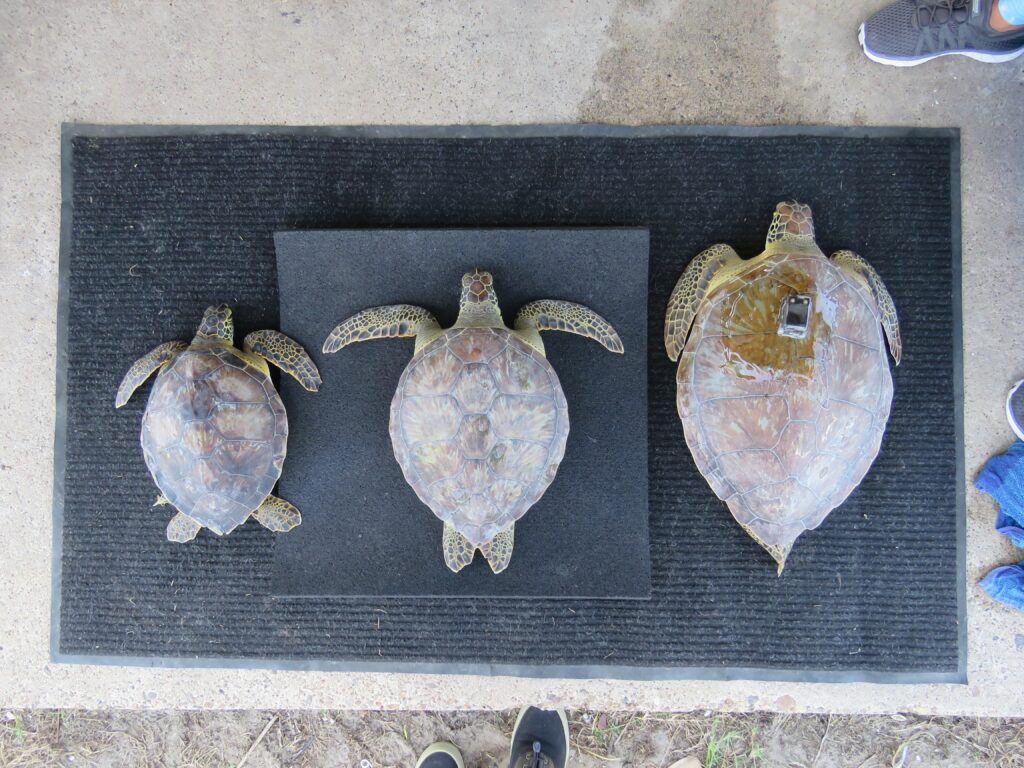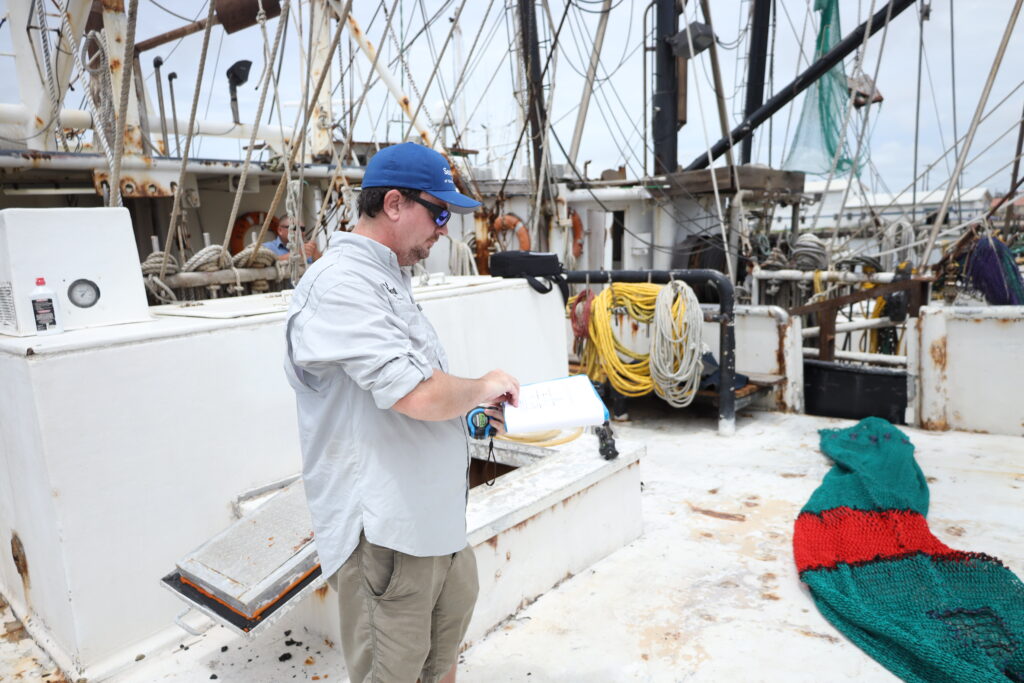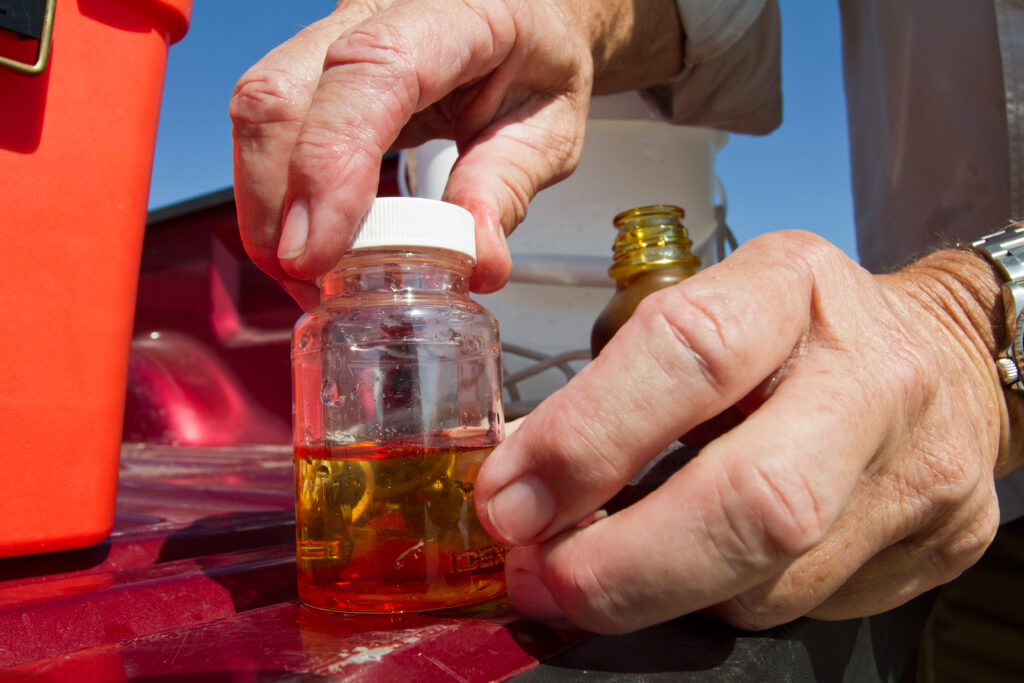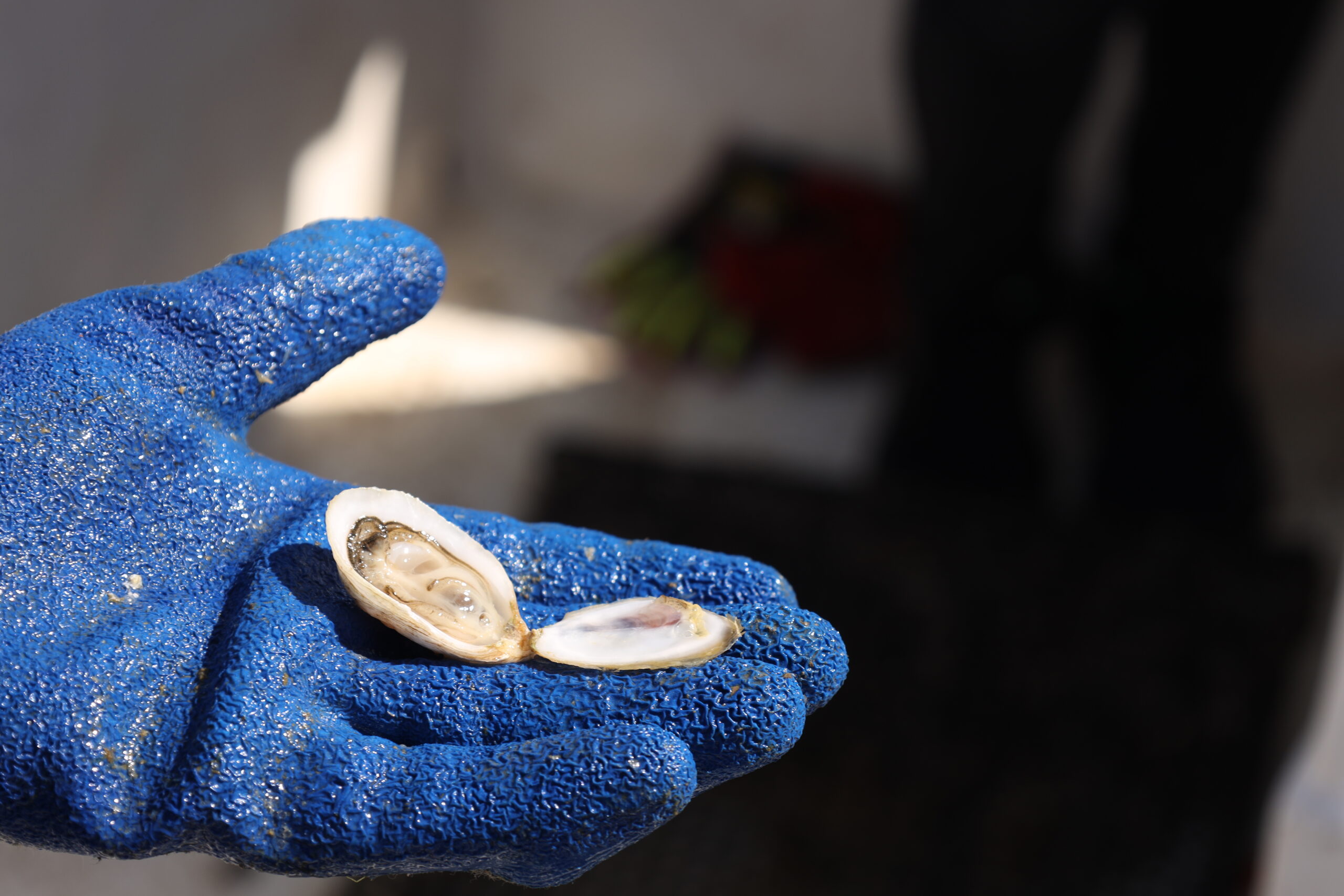Through Funded Research
Texas Sea Grant–funded research supports innovative, science-based solutions to address the environmental, economic, and social challenges facing Texas coastal communities.
Research to Outreach



Applied Science that Makes a Difference
Texas Sea Grant funds applied, science-based research that addresses both current and emerging challenges along the Texas coast. This research is designed to produce practical, actionable solutions that support the sustainable management and conservation of coastal and marine resources. As part of the national Sea Grant network, Texas Sea Grant shares a commitment to advancing science that benefits coastal communities, economies, and ecosystems.
Research supported by Texas Sea Grant focuses on four priority areas: Environmental Literacy & Workforce Development, Healthy Coastal Ecosystems, Sustainable Fisheries and Aquaculture, and Resilient Communities and Economies. Projects may address a wide range of issues, including coastal erosion, fisheries management, water quality, habitat restoration, climate resilience, and economic sustainability.
We invite proposals from researchers at universities, colleges, and research institutions across Texas. These projects often involve collaboration with local governments, the private sector, NGOs, and resource management agencies to ensure that research is aligned with community needs. Texas Sea Grant also works closely with Extension specialists to translate research findings into outreach tools, guidance, and technical assistance for stakeholders.
To maximize impact, our communications team helps share the results of funded projects with broad audiences—including scientists, educators, decision-makers, and the general public—so that the knowledge generated leads to informed action and long-term benefits for the Texas coast.

Featured project: Oyster reef restoration
A notable Texas Sea Grant–funded project focused on oyster reef restoration was awarded in March 2018 to researchers at Texas A&M University–Corpus Christi, Dr. Jennifer Pollack and Dr. John Scarpa, specifically to evaluate the habitat value of restored oyster reefs compared with natural reefs within the Mission–Aransas National Estuarine Research Reserve. By examining how restored reefs function ecologically and over time, the project provided critical insights into restoration effectiveness. These findings have informed best practices, helping coastal managers implement more successful oyster restoration efforts that enhance water quality, stabilize shorelines, and support marine biodiversity along the Texas Gulf Coast.
Funding opportunities
Texas Sea Grant offers a variety of funding opportunities throughout the year to support research, education, and outreach projects focused on coastal and marine issues. These include competitive research grants, graduate fellowships, and program development funds designed to advance science-based solutions, promote workforce development, and enhance coastal resilience. Opportunities become available at different times of the year, so interested applicants are encouraged to check regularly for announcements and deadlines.
Driven by the Strategic Plan
Texas Sea Grant supports a wide range of funded research projects that address the most pressing issues affecting the Texas coast, driven by guidance from the National Sea Grant strategic plan. These projects are selected through a competitive, peer-reviewed process and are designed to generate practical, science-based solutions that benefit coastal ecosystems, economies, and communities.
Key Areas of Focus Include:
- Coastal Resilience and Hazards: Research that helps communities prepare for and recover from hurricanes, flooding, erosion, and sea-level rise, often resulting in tools or models that inform local planning and emergency response.
- Fisheries and Aquaculture: Projects aimed at improving the sustainability and productivity of Texas’s commercial and recreational fisheries, as well as advancing responsible aquaculture practices.
- Ecosystem Health and Restoration: Research that supports habitat restoration (such as wetlands, oyster reefs, and seagrass beds), water quality improvement, and biodiversity conservation.
- Sustainable Coastal Economies: Studies that explore tourism, working waterfronts, and other economic drivers, helping communities diversify and strengthen their local economies while preserving natural resources.
- Education and Workforce Development: Research and pilot programs that develop STEM education tools, create career pathways in marine science, and build local capacity through student fellowships and community engagement.
Each funded project is typically grounded in strong community or stakeholder collaboration, ensuring the research not only advances scientific knowledge but also delivers real-world impact. Results are often shared through outreach efforts, extension programs, and policy recommendations to maximize their benefit to the public.
To stay informed about current or upcoming research opportunities, visit our funding page or connect with your local extension agent.
News
Contact
For more information specific to Research and Funding
Mia Zwolinski
Associate Director, Research Coordinator- mzwolinski@tamu.edu
- (979) 458-0449

Joana Rocha
Program coordinator II – Research- joana1@tamu.edu
- (979) 845-3048
